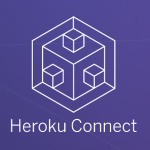About AppsFlyer
AppsFlyer provides users with centralized and accurate ROI tracking for each of their marketing campaigns and advertising sources. This includes both traditional advertising sources - like TV and social media - as well as harder-to-measure sources like in-app advertisements. It then sends all of this data to one consolidated dashboard to be viewed and analyzed.
About Heroku Connect
Heroku Connect is a data integration tool that uses bi-directional synchronization between Salesforce and Heroku Postgres to harmonize Postgres data your Salesforce information like contacts, accounts, and custom objects. Heroku connect includes a user-friendly, point-and-click interface so non-tech-savvy users can set up the service in minutes without coding or complicated configuration procedures.
Popular Use Cases
Bring all your AppsFlyer data to Amazon Redshift
Load your AppsFlyer data to Google BigQuery
ETL all your AppsFlyer data to Snowflake
Move your AppsFlyer data to MySQL
Bring all your Heroku Connect data to Amazon Redshift
Load your Heroku Connect data to Google BigQuery
ETL all your Heroku Connect data to Snowflake
Move your Heroku Connect data to MySQL
AppsFlyer's End Points
AppsFlyer Data Locker
Configure a large, daily export of raw data - including organic installs, impressions, uninstalls and in-app events - which is sent to a dedicated AWS bucket. Then, access that exported data whenever you need to and integrate it with other data sources for an even broader variety of insights and metrics.
AppsFlyer Reports and Exporting
Appsflyer reports fall into four categories: performance, re-targeting, fraud prevention, and raw data reports. You can export any of these reports to get an array of useful data, including the number of installations in a date range, the number of lost leads that were successfully retargeted, and the number of in-app events that occurred in a set period. This allows you to gauge your true ROI as accurately as possible.
Heroku Connect's End Points
Heroku Connect Synchronization of Apps Across Heroku and Salesforce
Heroku Connect allows you to build apps with open source stacks, natively integrate the apps with Postgres, and directly sync them with Salesforce. By integrating your Salesforce data with Heroku Postgres, it's easy to combine the power of the Lightning Platform with Heroku. Heroku Connect makes the process of building apps that bring your data and processes to your users as easy as coding in SQL.
Heroku Connect External Objects
Heroku Connect External Objects let you make your Heroku Postgres database information available inside your Salesforce deployment. This empowers you to synchronize your information across both platforms as you create, read, update, and delete data. By creating sophisticated applications inside Heroku and making the app data available to your Salesforce processes, you'll present a seamless experience in Salesforce, while all of your data stays inside Heroku Postgres. Moreover, configuring Heroku-Salesforce integrations for data pertaining to apps, sensors, customers, and products is a simple, point-and-click process that doesn't require any coding skills. Heroku External Objects combined with Salesforce Connect makes it easy to create a seamless experience across all of your business systems.
Heroku Connect Data Security Compliance
Heroku Shield Connect supports the development of applications that share sensitive data with Salesforce while complying with the strictest data security standards. Safely integrate CRM data, Protected Health Information (PHI), Personally Identifiable Information (PII), contact information, account data, and custom objects between Heroku apps and Salesforce. Heroku Shield Connect provides an easy pathway for building advanced applications that need to adhere to the most complicated data security regulations, including HIPAA compliance.
Heroku Connect Easy Application Development and Scaling
Through its compatibility with the most popular stacks and programming languages, Heroku Connect facilitates easy application development. Its add-on ecosystem includes your favorite development tools and databases (like New Relic, Mongo, and Redis) so you can use them with the applications you're creating. Through Heroku's proven infrastructure, which currently supports 26 billion daily transactions for massive consumer websites (such as Upworthy and Bonobo) virtually limitless scaling is available for high volume applications.








